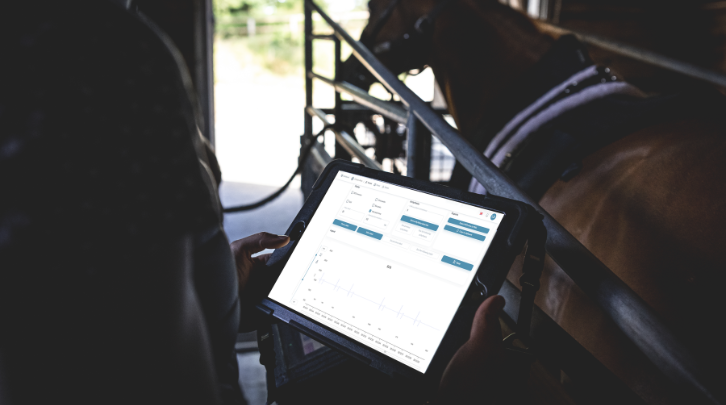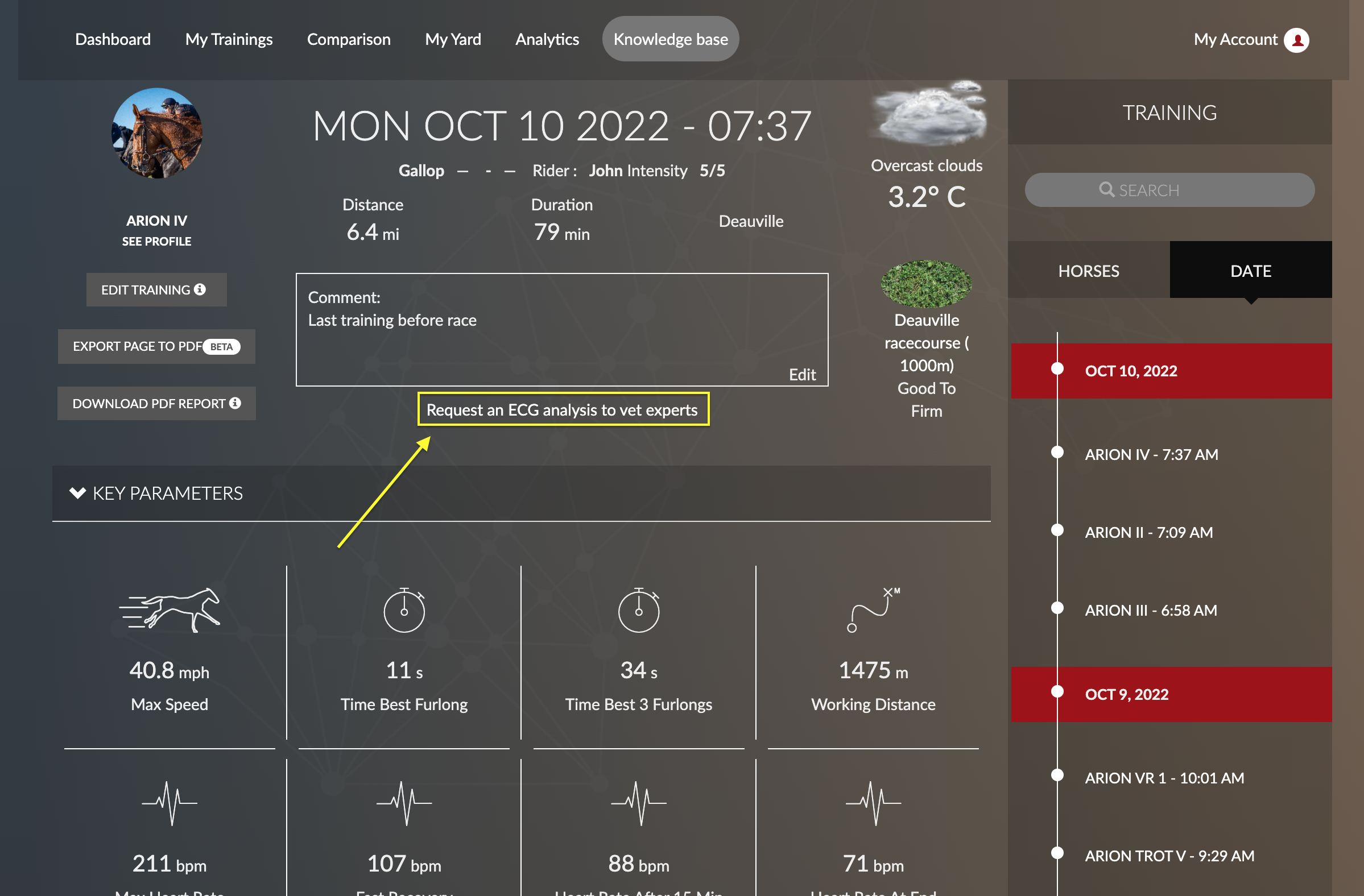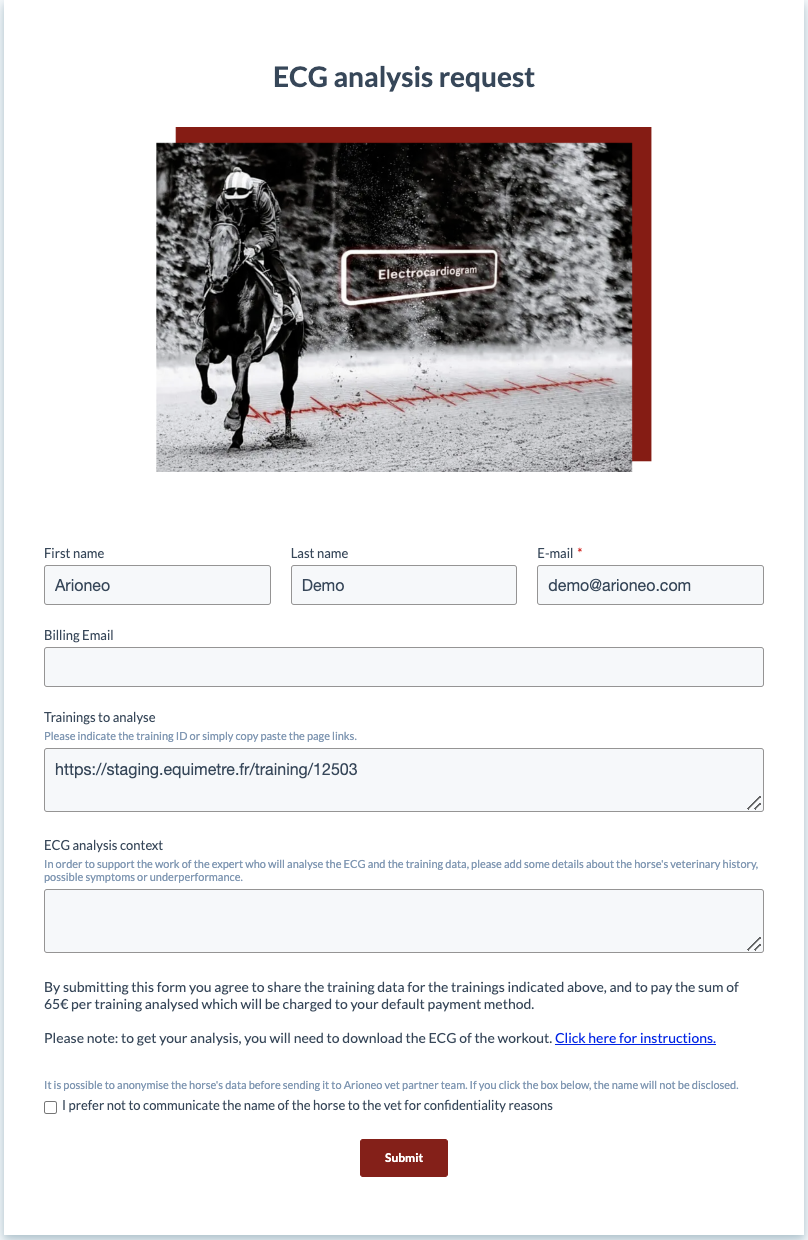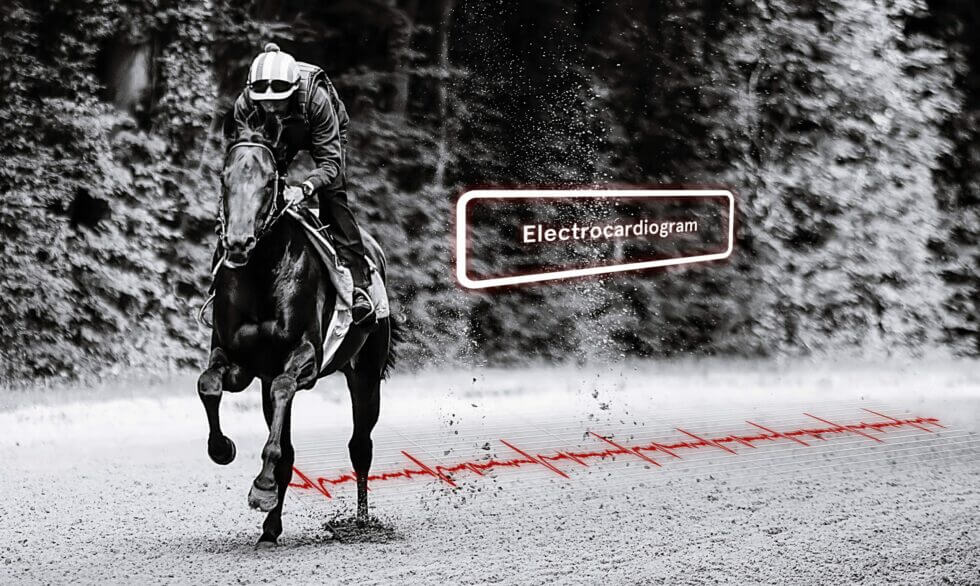New feature: send your ECGs to your vet
We are delighted to announce a new feature available on equimetre.com and accessible to all. This allows you to share your horse’s ECG directly with your vet. The Dahsboard Vet, Arioneo’s latest software, has been developed specifically for vets, offering an advanced ECG analysis program.
Simplified ECG sharing
To share an ECG with your vet and give them one month’s free access to our dashboard, simply click on the button under the comments box on the training page. All you have to do is enter your vet’s e-mail address.
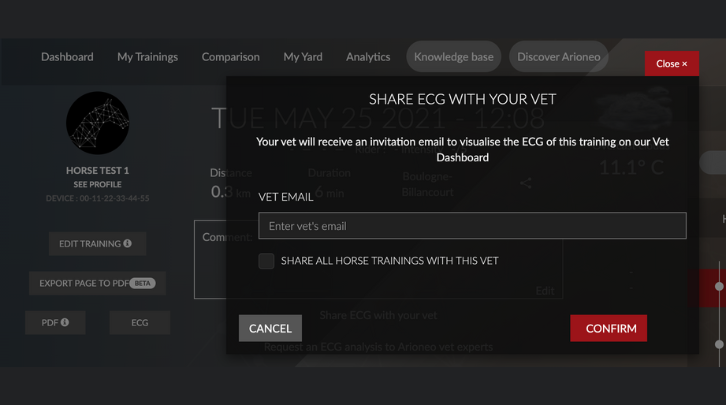
Request an analysis from our ESMP partners
If your vet does not specialise in ECG analysis, you can request an ECG analysis from Arioneo’s vet experts. Simply click on the second link and fill in the form. This will be sent to your Data Success Manager, who will put you in touch. This service is invoiced €65 per ECG.
Why it’s worth analysing ECGs
Analyzing the ECG of racehorses has a number of benefits, particularly for their performance and health. Studying the ECG makes it possible to detect early cardiac pathologies (arrhythmias, atrial fibrillation, etc.) and to monitor cardiovascular health over the long term. In terms of performance, it can be used to assess endurance capacity, adapt the horse’s training, improve its performance, etc.
Performance loss in the racehorse: the role of the ECG
Representing a real diagnostic challenge for vets, under-performance can be difficult to investigate if the horse’s entourage does not have the benefit of reliable technologies enabling a data history to be collected. Indeed, it is difficult to determine the cause of poor performance without almost daily monitoring. The symptoms to be identified are usually sub-clinical, meaning that they are difficult to detect at rest or during exercise. Detecting under-performing horses within the racing industry is a real challenge for institutions. Find out more
ECG of the athletic horse
Regularly monitoring your horse’s training by accessing its electrocardiogram (ECG) using a connected sensor has a number of advantages. It allows you to see the horse’s level of training during exercise, its ability to recover and its current level of fitness. What’s more, long-term training can change a horse’s cardiac activity. For example, it will be able to run at a higher speed for the same heart rate. Find out more
Heart murmur and performance: are they compatible?
The horse’s heart plays a crucial role in the animal’s adaptation to the intensive demands of training. As the central organ of the circulatory system, it adjusts its cardiac capacity to efficiently supply blood and oxygen to the muscles involved. The cardiovascular system is like a vast orchestra, where any structural defect can disrupt its functioning. A heart murmur, adding a discordant note to the initial heart rhythm, becomes the wrong note in the orchestra, alerting the trainer at various levels. Find out more
Key words: Vet Dashboard, Equimetre, health, performance, ECG, analysis, monitoring, training

